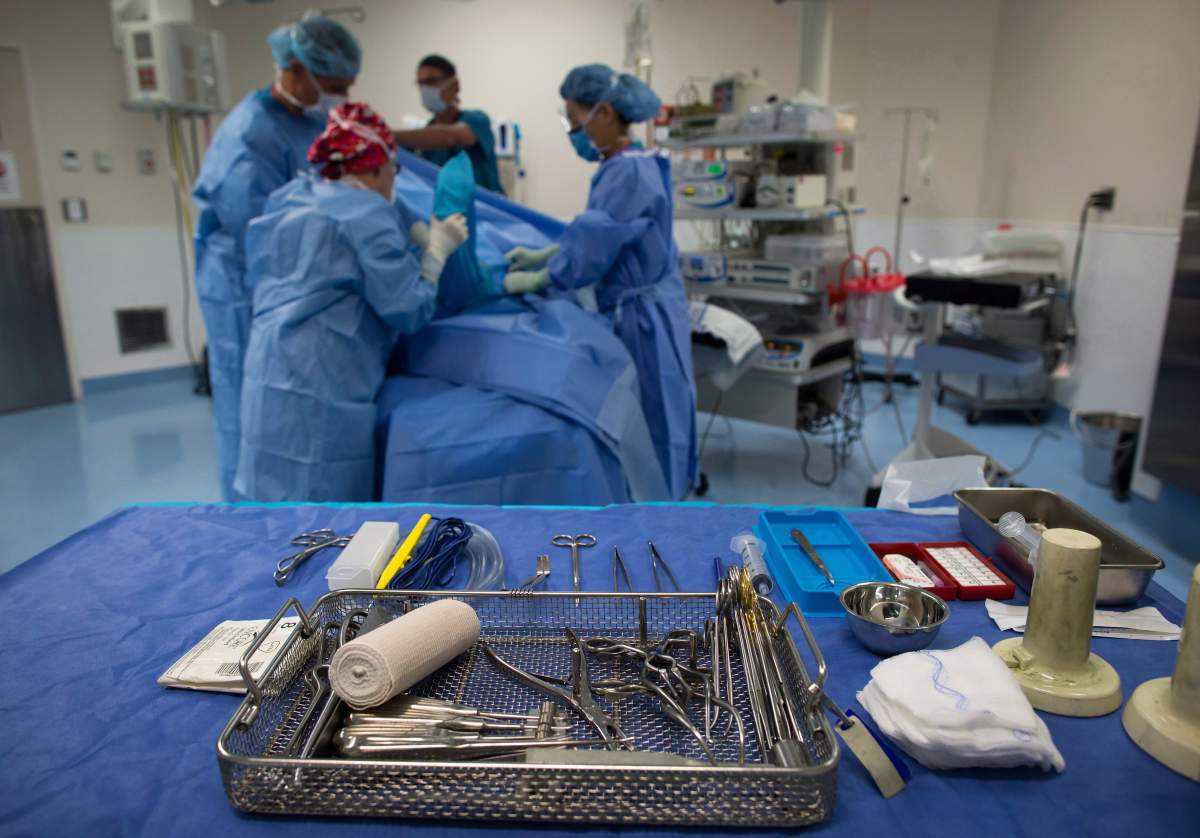A new poll conducted on behalf of SecondStreet.org, which examines “how government policies impact everyday Canadians,” suggests more Canadians than not support the idea of incorporating some kind of privatization into health care reform.

In the poll of 1,534 Canadians, conducted in early October by Leger, 51 per cent of respondents said they “support letting Canadians use their own money to pay for surgery at private clinics.”
An even higher number – 64 per cent – said they “support governments hiring private clinics to reduce surgical backlogs”, similar to the existing and expanding (publicly funded, privately delivered) private surgical program in Saskatchewan.
Meanwhile, 72 per cent said they “support copying a European Union (EU) policy called the Cross Border Directive,” which allows members of EU countries to seek out certain medical treatments in other countries and then apply for reimbursement of the expenses.
In Saskatchewan and Manitoba, where 107 people were polled, support for mimicking the EU policies was 85 per cent.
“Overall what we found was that Canadians are very much willing to proceed with health reform,” said SecondStreet.org President Colin Craig.
“I think people understand that decades of simply throwing money at the health-care system hasn’t worked. It’s definitely an opportunity now to move forward with some reform measures that could actually help patients.”

SecondStreet.org has conducted similar polls in the past.

Get weekly health news
Craig said questions about Canadians’ willingness to pay for their own health care consistently see majority approval of the idea, as was the case in this poll.
“Canadians will get in their cars and drive to the United States, or fly all over the world. They’ll take their money out of Canada’s economy and they’ll take health care elsewhere,” he said.
Meanwhile, 66 per cent of respondents said they believe health ministers should hold a press conference each year “to announce the number of patients
that died due to long waiting lists.”
In Saskatchewan and Manitoba, support for such an event was 76 per cent.
- Alberta mulls ditching time switch — again — as B.C. moves to permanent daylight
- Will Iran launch cyber attacks? Be ‘vigilant,’ Canada warns critical operators
- Canadians stuck in Middle East say cities ‘very tense’ as Iran conflict escalates
- In London, Poilievre pitches new UK, Australia, New Zealand partnership
The idea of privatization isn’t without its critics though.
Canadian Union of Public Employees (CUPE) 5430 President Bashir Jalloh said while he agrees the results show Canadians are supportive of health-care reform, they should be cautious about creating a two-tiered system and pulling talent away from a public system already struggling with a “limited pool” of health-care workers.
“In some of those European systems, they have the capacity in the public system. What we have here, we’re moving towards privatization without expanding capacity in the public system,” he said.
“Before you go to those surgeries, you have to do a bunch of tests, bloodwork, medical images. When they do those surgeries, most patients will have to come back to the public system for pre- and post-op surgical care. In Saskatchewan we have a significant staff shortages. There is a significant backlog in those certifications.”
CUPE 5430 is the largest health-care union in the province, representing more than 13,600 workers.
In August, The government of Saskatchewan announced a request for proposals to find a private surgical provider to perform up to 3,000 elective orthopedic surgeries per year in Regina.
With respect to the current surgery wait list, a government spokesperson provided the following statement:
“Between April 1 and June 30, 2022, there were 21,997 surgeries performed, with 73.9 per cent of patients receiving their surgery, or an offer of surgery, within three months, 83.4 per cent within six months, and 92.2 per cent within twelve months.
“There were a total of 35,969 patients waiting for surgery on June 30, 2022. This figure includes patients who have been waiting less than three months.”











Comments
Want to discuss? Please read our Commenting Policy first.